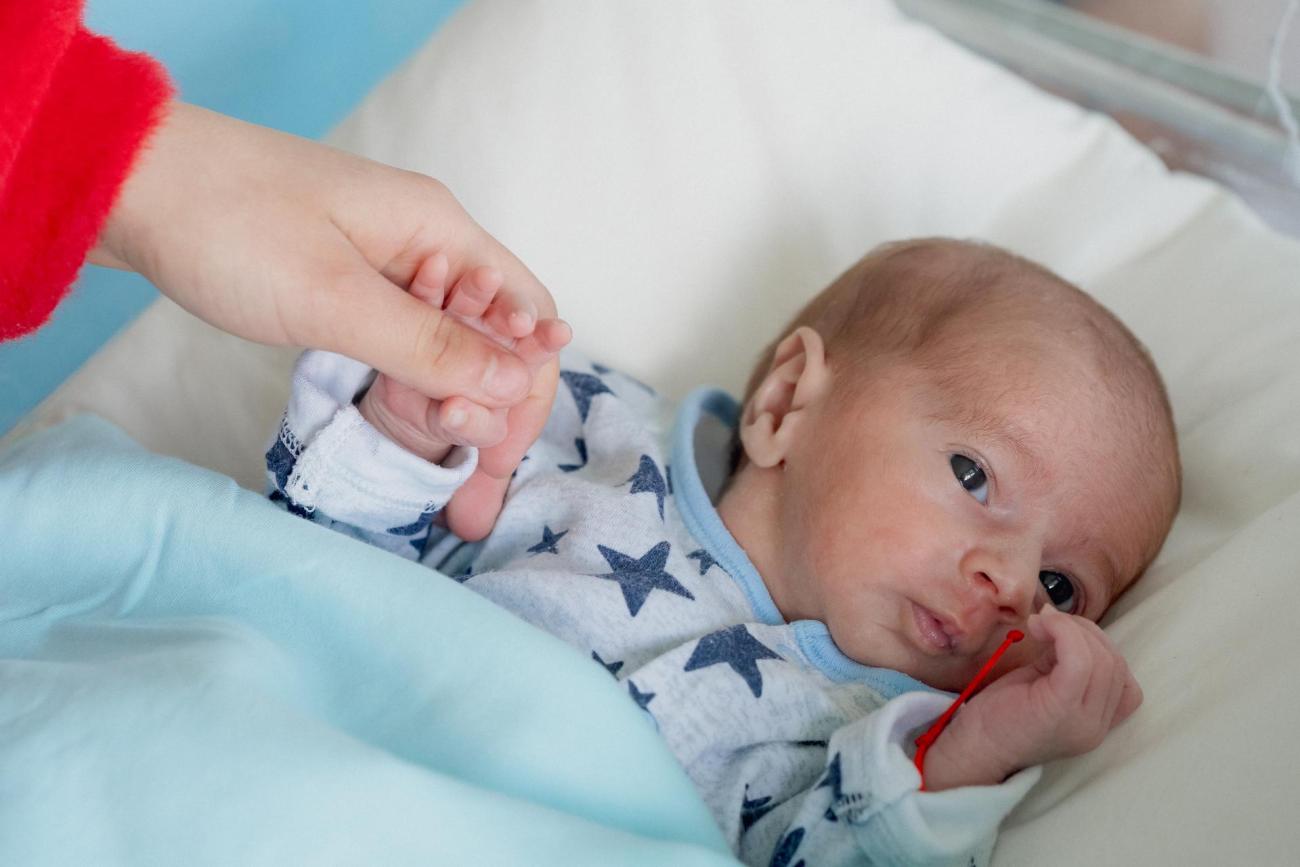Access to health services in Moldova provides hope for refugee mothers and newborn children

Since the beginning of the war, UNICEF has supported the healthcare system in Moldova to provide free health services for refugee mothers and their children.
In a maternity ward in the capital Chisinau, little Denis clasps his mother’s finger, ready to begin his journey in life. The woman who brought him into this world is from Odesa, Ukraine, a country where pregnant women were placed in life-threatening situations and had to make difficult decisions since the war began on 24th February 2022.
Svetlana, a young mother woman from Ukraine, fled the bombings along with her family when she was sixth months pregnant.
“I wanted to give birth in Odessa because I knew the doctors there. I was very worried when I arrived in Moldova, a foreign country. I had no choice, and I gave birth here and everything is fine. I was taught how to care for the child and feed him,” says the excited young mother.
Little Denis, however, came into the world much earlier than planned and was born after only 31 weeks of life in his mother’s womb. He was lucky that his mother was already in Chisinau, and they were able to get admitted into the hospital and access government health services, which were made available to Ukrainian refugees.
He spent the first 10 days of his life in an incubator at the Neonatal Intensive Care Unit of the Institute of Mother and Child in Moldova, provided by UNICEF and received the appropriate health care for a premature baby. Now he is out of any danger.
Apart from specialized care, the mother and her newborn child received essential supplies, such as hygiene products and clothes, which brought Svetlana much joy and peace as she had been affected by the war and the premature birth of her child.
“When they told me that Denis will be put in the incubator, I cried day and night. I couldn’t eat because I was so worried. I prayed to God that everything would be fine because I was very anxious to see all that equipment on his body,” says Svetlana.
Her family and the health workers from the hospital helped Svetlana through the difficult moments. Today, she is enjoying motherhood.
Ana Lupan, a maternity ward nurse, sits by Svetlana’s side and gives the young mother advice on how to take care of her newborn child, as she has done for almost 40 years, providing advice to countless new mothers.
“From the first day, she asked many questions about caring for the baby, and I explained all the basic rules about hygiene, how to hold the baby boy, how to feed and wash him. Every woman who becomes a mother for the first time needs advice and support, and we try to be with them and to make them feel safe,” says Ana Lupan.
Since the beginning of the war, UNICEF has supported the healthcare system in Moldova to provide free health services for refugee mothers and their children. UNICEF secured 50 million lei to provide refugee children from Ukraine with free medical services in Moldova. Additionally, UNICEF also provided medical equipment, including incubators and other supportive equipment worth 342 000 USD to improve critical medical services offered to refugee mothers and their newborns within the Neonatal Intensive Care Unit. This support has been possible with the financial support of the Governments of Japan, Sweden, Great Britain, Austria, the USA BPRM US Bureau of Population, and the United States Fund for UNICEF.
Since 24 February 2022, nearly 750,000 individuals have fled to the Republic of Moldova from Ukraine. At present, 108,000 refugees remain in the country, nearly half of them children. More than 200 women gave birth in Moldova since the beginning of the war in Ukraine.
Meanwhile, Svetlana and Denis are about to be discharged from the hospital. The young mother is excited to go back to her family who are currently living in Chisinau. “I look forward to being a good mother and feel confident I can take care of him on my own,” she says.




